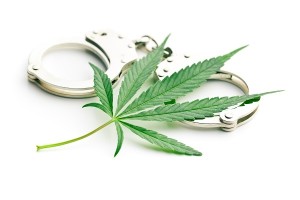Trial Lawyer – Discuss With Us Your Drug Crime Case
Drug Crimes: Medical & Non-Medical Drugs Discussed
When you hear “drug crimes” the first thing that comes to mind is illegal substances. You’re thinking of methamphetamine, cocaine, or LSD, among others. However, the term “drug crimes” encompasses all other drug abuse, including that of illegal and legal drugs.
Here’s an overview of drug laws in Texas based on types of substances and corresponding penalties.
Different Drug Crimes
Understanding the specific laws covering drug crimes begs to answer the question, “exactly what are considered drug crimes?” There are three basic drug crimes:
- Drug possession – when you’re found to be in possession of controlled substances, you will be charged with drug possession. This is typically the least serious drug crime but it can have serious punishments and can be penalized as a felony, depending on circumstances.
- Drug trafficking – more serious than drug possession, trafficking in Texas includes the transportation and distribution of controlled substances. The charge includes drug possession so you need to be found in possession of the drugs to be charged with trafficking. A lot of times, circumstantial evidence can be used to elevate a drug possession charge to drug trafficking.
In order to prove the latter, there needs to be evidence to show that you intended to transport or sell the drugs. For example, you have baggies and a weighing scale. These indicate that you plan on packaging the drugs for retail.
- Drug manufacturing – if you are suspected of creating or growing an illegal substance you will be charged with manufacturing drugs. The seriousness of the charge will depend on what type of drugs you are making or growing. Even if you’re just carrying out a part of the process, you may be charged with drug manufacturing.
Basic Definitions
To better understand the law and the terminology involved, Chapter 481 (Texas Controlled Substances Act) of the Health and Safety Code defines the terms involved in drug crimes. These terms include:
Drug – “means a substance, other than a device or a component, part, or accessory of a device, that is:
- Recognized as a drug in the official United States Pharmacopoeia, official Homeopathic Pharmacopoeia of the United States, official National Formulary, or a supplement to either pharmacopoeia or the formulary;
- Intended for use in the diagnosis, cure, mitigation, treatment, or prevention of disease in man or animals;
- Intended to affect the structure or function of the body of man or animals but is not food; or
- Intended for use as a component of a substance described by Paragraph (A), (B), or (C).”
Controlled Substance – according to the Health and Safety Code a “controlled substance” means:
- “A substance with a chemical structure substantially similar to the chemical structure of a controlled substance in Schedule I or II or Penalty Group 1, 1-A, 1-B, 2, or 2-A; or
- A substance specifically designed to produce an effect substantially similar to, or greater than, the effect of a controlled substance in Schedule I or II or Penalty Group 1, 1-A, 1-B, 2, or 2-A.”
Possession With Intent To Manufacture Or Distribute
Possession with intent to manufacture or distribute is illegal when it involves the transportation of a controlled substance from one state to another, or if it’s in excess of an amount that would be allowed to be possessed under the law of another state.

Drug Paraphernalia
Drug paraphernalia refers to the objects used in growing, processing, and using controlled substances. It is not a single item but rather an entire household of items that are commonly found alongside drug trafficking.
Drug-Based DWI
Drug-based DWI is a term for driving under the influence of drugs. The most common type of drug-based DWI is marijuana, but there are also other drugs that can cause a person to be charged with drug-based DWI.
Drug Conspiracy
A conspiracy is a secret plan by which people try to achieve their goals. This can involve an illegal act, such as the sale of drugs or murder.
Texas Drug Law
The Texas Controlled Substances Act covers drug crimes and plays a vital role in the state’s war on drugs. In it you’ll find drug crimes are divided into “Schedules” which classify substances according to their effects, addictive qualities, and how much risk they pose.
Schedule I Drugs
Schedule I is the most restrictive drug schedule in Texas. It includes drugs that have a high potential for abuse and no accepted medical use in the United States. This category includes drugs like LSD, Ecstasy, and marijuana.
Schedule II Drugs
Schedule II drugs are substances that have a high potential for abuse and can cause physical or psychological dependence. They also have accepted medical use in the United States. Some common Schedule II drugs include OxyContin, Methamphetamine, Methadone, Percocet, Cocaine, Demerol and Fentanyl.
Schedule III Drugs
Schedule III drugs are those that have a lower potential for abuse than Schedule I and II drugs but still have the potential to develop physical and psychological dependence. Buprenorphine is a Schedule III drug, as are all drugs containing it like Sub Oxone. Codeine with aspirin or Tylenol is also a Schedule III drug. These drugs have a low risk for abuse but should be taken only as prescribed by a doctor.
Schedule IV Drugs
Schedule IV drugs are substances that have a low potential for abuse, less serious than the drugs in Schedule III. Abuse of these substances may lead to limited dependence. These drugs also have accepted medical use and are safe when used as directed.
Schedule V Drugs
Schedule V is the least restrictive of all the drug schedules in the United States. This schedule includes medications that have very low concentrations of codeine and other opioids. These medications are typically used to suppress coughs.
Can A Drug Charge Be Dropped?
Drug charges can be serious and carry stiff penalties. If you are facing drug charges, it is important to hire a veteran attorney who understands the law and can help you build a strong defense. There are three factors that must be present for law enforcement to make an arrest for drug possession: 1) The officer must have probable cause to believe you had care, custody, or control of the drug; 2) The drug must fall into one of the five Penalty Groups established by the Texas Health and Safety Code, and 3) The penalties for each group vary depending on which group the drug falls into.
How Long Do Drug Charges Stay On Your Record?
It depends on the charges you are facing. If your charge is a felony, it can stay on your record for up to 10 years. For any other type of charge, it stays for one year.
Does Having Drugs In Your System Count As Possession?
No, being in possession of drugs does not count as possession.
When you find yourself facing charges for drug crimes, you may be wondering what type of penalties you could face. While the specific punishments vary depending on the drug, it is important to know that there are two different types of possession: actual and constructive.
A person can be charged with actual possession of drugs if they are in “actual physical control” of a controlled substance. This means that the drugs are on the person and they have control over them.
Constructive possession occurs when a person has knowledge of drugs and has the ability to exercise dominion or control over them. It is not necessary for the person to be in physical possession of the drug.

In order for a person to have constructive possession over drugs, they must knowingly exercise control over them and have knowledge that the substance is present.
Constructive possession is a lesser charge than actual possession. It can be used to show that the accused had knowledge of and control over illegal drugs, but it does not prove they were in physical possession of the drugs.
Constructive possession is a crime in Texas, and it can be used to charge someone with drug crimes even if they are not caught with the drugs or paraphernalia on their person.
The distinction between the two can be confusing, but it is important to understand if you are facing charges for drugs. Make it easier by hiring a criminal defense lawyer. An experienced lawyer can help you understand the charges against you and your options. If you are charged with drug crimes, it is important to hire a lawyer who understands the complexities of Texas drug laws and can help you fight your charges.
Drug Crimes – Getting Charges Dismissed For Drug Possession Convictions
&
(214) 888-4810 We cannot receive pictures via text so please send those via email or hand deliver to our office.
(214) 888-4810 No podemos recibir imágenes por mensaje de texto, así que envíelas por correo electrónico o entréguelas personalmente en nuestra oficina.






